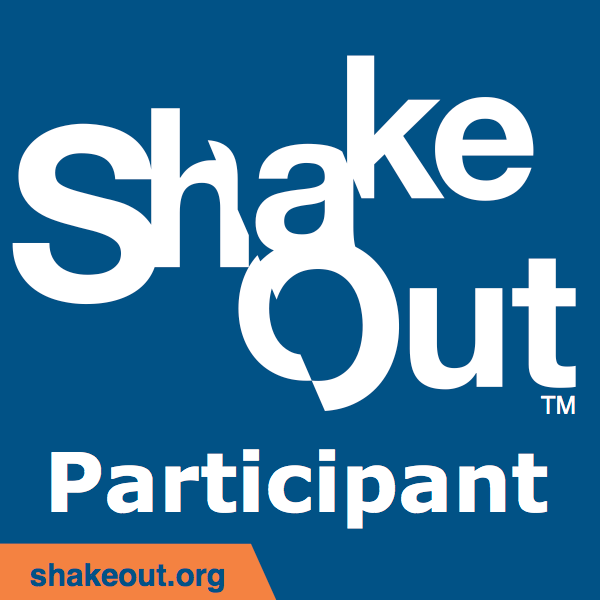Ladybirch shares the healing touch
FEATURED WRITERS CORNER
I first ‘met’ Genie Rayner electronically, when I read her heartrending poem Paradigm Shifts on KPN, a writers’ webcommunity we both belong to. Her fierce stance through personal pain struck me most significantly:“In the grand scheme
the little things don’t
seem to make much difference …
Just as climate change
shrinks Mother Earth,
my father’s world
shifts too
and he’s lost his little girl.
As he bends closer to the ground,
turns off more lights
as he goes more blind,
he already wears his death mask,
shrinks deep into Alzheimer’s past …
Then a long, warm fall
with hints of the shadows
of spring,
one cat makes friends
with the others,
and new times to write,
to try to sing …
these little things
make all the difference in the world …
Even if
I’m no longer
his little girl.” Paradigm Shifts by Genie Rayner, 2009
For me it gave meaning to Robert Frost’s belief that ‘a poem begins with a lump in the throat’.
I learned more as we got to know each other. You know how these web friendships take time to unfold. Before the years of caring for her dad, Bill, she seemed to me somehow like a southern swallow homing in on her northern perch: originally from New Orleans, she just kept moving north until she found Vermont — and stopped. And stayed.
‘My soul had to find Vermont before I could gain the courage to call myself an artist,’ she says.
Maybe she is part-bird. Like me, she is deeply caught up in the seasonal movement of the flying creatures, owls, cardinals, hawks; also trees, flowers, anything green; she grows an organic garden, empathizes with frogs, deer, most mammals, autumn breezes. Like me, she has more cats than most people consider ‘sensible’. I make no excuses. I like her. In her writing on her ‘other’ wordpress blog, she goes by the name of Ladybirch — it is, after all, a Birch (B)log. She is poet, novelist, freelance editor, photographer, artist, quilt-maker, chair-restorer, writing mentor and consultant. Co-founder of Rutland’s BirchDel Poets and Druidfarm Creations, she encourages all talents focused on creativity for the wellbeing of mind, body, earth and soul. You get the picture: she’s a busy woman. At the moment she’s working on a poetry chapbook — or two — a novella and, if you need your own work edited, she’s your (Magiclamp Editing) woman. In her spare time she has written her first novel, Song of the Blessing Trees published by British small press Gilead Books.i wasn’t certain I was being very kind when I asked her to take time in her busy schedule to contribute to my little Writers’ Feature Corner, but she readily agreed. And I’m so glad I did, because she brings to this sharing of our thoughts on writing — so many authors, budding or successful, with so many points of view — a gentle wisdom and deep perspective of what it takes to extract words from the subconscious and place them one in front of the other on the printed page.
Bless you Genie for this insightful piece.
The ‘Whole’ Meaning of Writing by Genie Rayner
When you think about it, words are funny things. There are, after all, easier and quicker ways to communicate: eye contact, touch, music, visual art, dance, even silence can all speak volumes – for good or ill – if we’re aware, attuned and receptive to the possibilities waiting to be evoked.
As writers – and speakers – we know all too well that words can be awkward, slow, difficult to find. They can cause pain or distress, tears, anxiety or fear; they can wound and cause irreparable damage. On the other hand, the right word(s), written or spoken, are among the most beautiful things in the world.
At least to this writer.
As much as I love and need the other arts, as much as I use the other ways to communicate, there is nothing quite like a beautifully-turned phrase, a thoughtful way of putting words together, to inspire a sense of meaning in one’s life.
Almost everyone is familiar with the popular definition – and concept – of logos. In his book A Man’s Search for Meaning, though, Viktor Frankl digs even deeper than the usual translation of ‘word.’ From his experience in a World War II concentration camp, Frankl explains that logos actually denotes ‘meaning’ first and foremost:
“Frankl relates how he came to discover his new school of psychotherapy … in Auschwitz where he had been interned. He tells how, with his trained clinical eye, he began to perceive that his fellow prisoners were wasting away and dying physically because… they had no ‘meaning’ to live for, so they gave up the struggle and buckled under. Very unobtrusively Frankl started to pick up meanings in the[ir] lives… in casual conversation with them; then, he began very naturally and imperceptibly to feed these same meanings back into the lives of respective prisoners. What he noticed in sheer wonder… was that these companions of his, who had practically surrendered to their fate… came suddenly alive and could go through any torture, any trial, any hardship in the camp, thanks to the meaning or meanings that had been injected back into their lives….
“So it was that Frankl discovered and later developed his logotherapy – that is, making people whole (= therapy) by giving meaning (= logos) to their lives. For the primary signification of logos is ‘meaning’; its secondary signification is ‘word.'”
Discovering Your Personal Vocation: The Search for Meaning Through the Spiritual Exercises (NY: Paulist Press, 2001, pp. 19-20), by Herbert Alphonso, SJ, quoted in Genie’s Master of Arts thesis
I think one of the reasons for this is because words – and by extension, at least for writers, the written word – connect us to one another. They can and do create relationships, sometimes when we don’t even know the other person(s). A wise woman recently wrote to me of the ‘umbilical connection’ writers have with words; that most basic relationship, then, grows and connects to untold others who read our words.
That is one of the fundamental reasons I write: relationship.
Sometimes I’m lucky – and privileged – enough to know that my words have made a positive impact on someone, and that is thrilling. Even when the impact is negative, at least I know I’ve made a connection, made someone think enough to argue with me or want to discuss something further. That, too, is exciting. I’ve done my job!
I’m also enough of a writer to fantasize about the connections some of my now-unpublished works might make after I’m dead and gone. If anyone goes through my desk drawers and the boxes under my bed, they’ll find reams of old poems, essays, jottings, story ideas, and books in various degrees of progress. Maybe that person or those persons will care enough for my efforts that s/he or they will take the time to read them. Perhaps a poem will be found at a time when it’s needed to help someone through a tough spot; perhaps one of the unfinished books will stir up enough ideas for the reader to continue it to fruition; someone might even think something is good enough to submit posthumously and it will finally get published and reach others somehow, somewhere.
But even before then, one can – and does – hope that some of the same things will happen. Some of my poetry and other writings have engendered lifelong or important relationships, just as others’ works have inspired me to contact and connect with them because of something meaningful in their words or craftsmanship.
More often, though, I have no idea how readers take my words or respond to them. Most writers don’t.
So what’s the point of writing?
I keep coming back to ‘meaning’ and relationship and connection. Perhaps the most important relationship, the most meaningful one, is that with ourselves. Though I always hope others will find some kind of meaning in my work and my words, they can’t if I don’t first. I suggest this is why blogging has become such an integral part of our recent technological lives: people need to connect with themselves and with others.
Of course, there are always pieces that will never meet other people’s eyes, heart or soul, but I still had to write them for my sake. I hope I’ve become a better human being because of the letters, poems, stories and fragments that have helped me work through trauma, crises, heartache, joy, even silliness… but they’re too personal or not developed enough ever to crawl out of the desk drawers or boxes under the bed.
Sometimes just putting words to paper – especially putting words to paper, rather than typing on a keyboard – makes that vital connection between head and heart that, I hope, results in a more developed person. Though the works themselves may not be complete, simply making the creative effort to find meaning makes me more complete. If I’m lucky, working through something by writing about it will spark insights and revelations that couldn’t have come otherwise or in quite the same way, and I am even more whole.
Righteous!
It truly is. One understanding of the word ‘righteous’ in the Bible is ‘right relationship with God.’ Though it may sound selfish and self-centered, if I can’t or don’t make that critical connection to me – to what’s going on in and with my ‘I’ (as in Martin Buber’s I and Thou) – first, then I can’t connect to God, or the Other. And I sure can’t connect to all the unknown others I hope will find meaning through my words.
It is, after all, a cooperative creative process, this ‘thing’ writers must and can do. We writers may think we’re solitary, but we’re not really. Call it spiritual, religious, holy, or any other term with which you’re comfortable, writing is a co-creative endeavor that involves many others—some known or intended and seen, some unknown and unintended – and many layers of involvement.
Just as Frankl’s spoken, and then written, words were healing – and ‘wholeing’ – for others, I think most (if not all) of us want our words to do that as well, regardless of genre or theme or plot. At least on a fundamental, intuitive level.
We strive for that connection, those relationships that complete our work – and ourselves – with our work, by our work.
With that intent, we can’t help but contribute to a better, more complete and healed world, even if it’s person by person, reader by reader. It may be a slow process, co-creating a collective world of and with meaning, but it’s worth it, in my view. Maybe it’s even better to be slow, more one-on-one. There’s an intimacy to that concept that really appeals to me.
Regardless of how long or slow writing is, how solitary or collected writers are, I suggest that we are working for and toward the umbilical relationship of wholeness with others and ourselves. That gives a meaning to my work that can be expressed only through more words.
Every time I sit down to write, I look forward to the anticipation of possibilities and connections that will emerge – for something unexpected always occurs. I always find a little more of and about me and I hope I always find a little more of and about others, the world, the human condition, God, and the mysteries of the creative process.
It doesn’t get much more meaningful than that.
©2010 Genie Rayner














